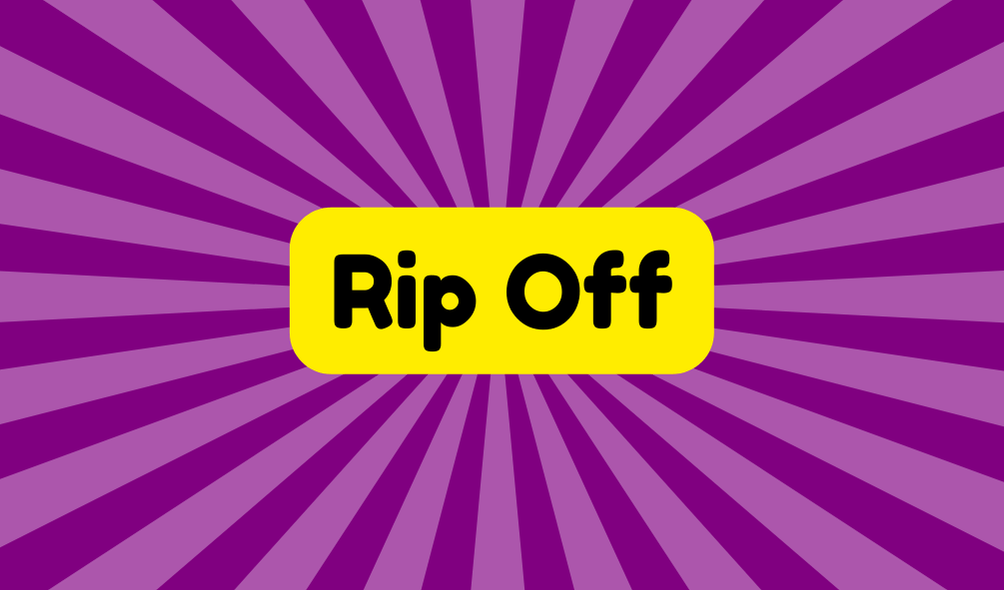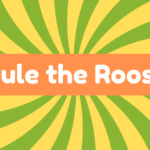"Rip off" means being unfairly exploited or cheated, often through imitation or overpriced products. This American slang term popped up around 1900, evolving from prison slang and gaining traction during the 1960s. You've likely encountered rip-offs in trendy clothing or mediocre movies, leading to dissatisfaction and financial loss. For instance, you might say, "That concert was a total rip-off; the band barely played." The term highlights ongoing consumer issues, emphasizing the need for awareness in today's market. Understanding this concept pushes you to make smarter choices, ensuring you're not falling for knockoffs or overpriced items. There's more worth uncovering.
Synonyms
When you think of the term "rip-off," several synonyms likely come to mind that convey similar meanings. These words reflect the essence of unfair exploitation, especially in the marketplace. Consider these examples:
- Copycat Creations: These are products that mimic popular brands without original ideas.
- Imitation Products: These items often look the part but lack the quality and innovation of their originals.
- Knockoffs: Cheap versions of high-end products that promise the same value but deliver disappointment.
These terms underscore a broader issue in consumer culture, where authenticity is sacrificed for profit. Maneuvering between genuine quality and these imitation products requires awareness so that you can avoid falling victim to overpriced, lackluster alternatives.
Example of Sentences
Rip-offs often manifest in everyday life, making it important to recognize when you're being taken advantage of. Imagine feeling cheated out of your money when you see:
- A trendy outfit priced like gold but lacking quality.
- A movie ticket for a film that leaves you yawning instead of cheering.
- An album that claims originality but is merely a pastiche of classic hits.
In today's world, these rip-offs resonate with ongoing cultural appropriation debates and consumer protection issues. You should stay vigilant and question authenticity, especially when big brands exploit creative works. Remember, understanding these examples not only enriches your knowledge but also empowers you to make better decisions as a thoughtful consumer in a complex market landscape.
Origin
The term "rip off" has a fascinating history that dates back to around 1900, when it became a staple in American slang. Its origins reflect a historical evolution closely tied to socio-cultural movements, particularly within African American prison slang by 1904. This expression gained broader cultural significance during the 1960s, aligning with the Hippie Culture in San Francisco. By 1971, it evolved to describe poor imitations. The British media adopted the term "British rip-off" in the late '90s, further expanding its reach and meaning. Through its journey, "rip off" has highlighted issues of authenticity and exploitation across various fields, prompting critical discussions about value and quality in a world often driven by surface impressions.
Collocations
Although many associate the term "rip off" with financial loss or deception, its usage extends into various collocations that enrich its meaning. Understanding these connections can foster greater consumer awareness and promote artistic integrity. Here are three common collocations to reflect upon:
- Rip-off prices: Items sold at exorbitant costs for little value.
- Rip-off artists: Creators or companies that exploit originality for profit.
- Rip-off culture: An environment where imitation prevails over innovation.
Recognizing these collocations helps you navigate the marketplace and discern true value. When you encounter art or products, question their authenticity and worth. This critical perspective not only aids in personal decision-making but also advocates for a fairer, more original ecosystem in art and commerce.
How to Use in Everyday Language
Understanding collocations like "rip-off prices" and "rip-off artists" can enhance your ability to use "rip-off" in everyday conversations effectively. This colloquial expression highlights situations where something seems overpriced or deceptive.
| Context | Example | Cultural Reference |
|---|---|---|
| Shopping | "Those shoes are a total rip-off!" | Reflects consumer frustrations |
| Entertainment | "That movie felt like a rip-off." | Critiques exploitation in media |
| Music | "This song's a total rip-off!" | Discusses originality issues |
Using "rip-off" helps simplify complex ideas about value and authenticity, allowing you to express skepticism about pricing and quality. By integrating this term into your dialogues, you connect with broader cultural conversations about fairness in consumer experiences.
Why Is It Still Relevant Today?
In today's consumer-driven world, the term "rip-off" remains highly relevant as it aptly captures the frustrations and realities many face. With a constant influx of products and services, you often find yourself questioning their true value. This cultural relevance highlights the need for consumer awareness, especially in an age where imitation and exploitation run rampant. Companies sometimes cut corners, delivering subpar experiences that leave you feeling cheated. Awareness of these practices empowers you to make informed choices, supporting authenticity over deception. By recognizing what constitutes a rip-off, you can protect your financial interests and promote fairness in the marketplace. Ultimately, understanding this term helps nurture a more conscious and critical approach to consumption.







